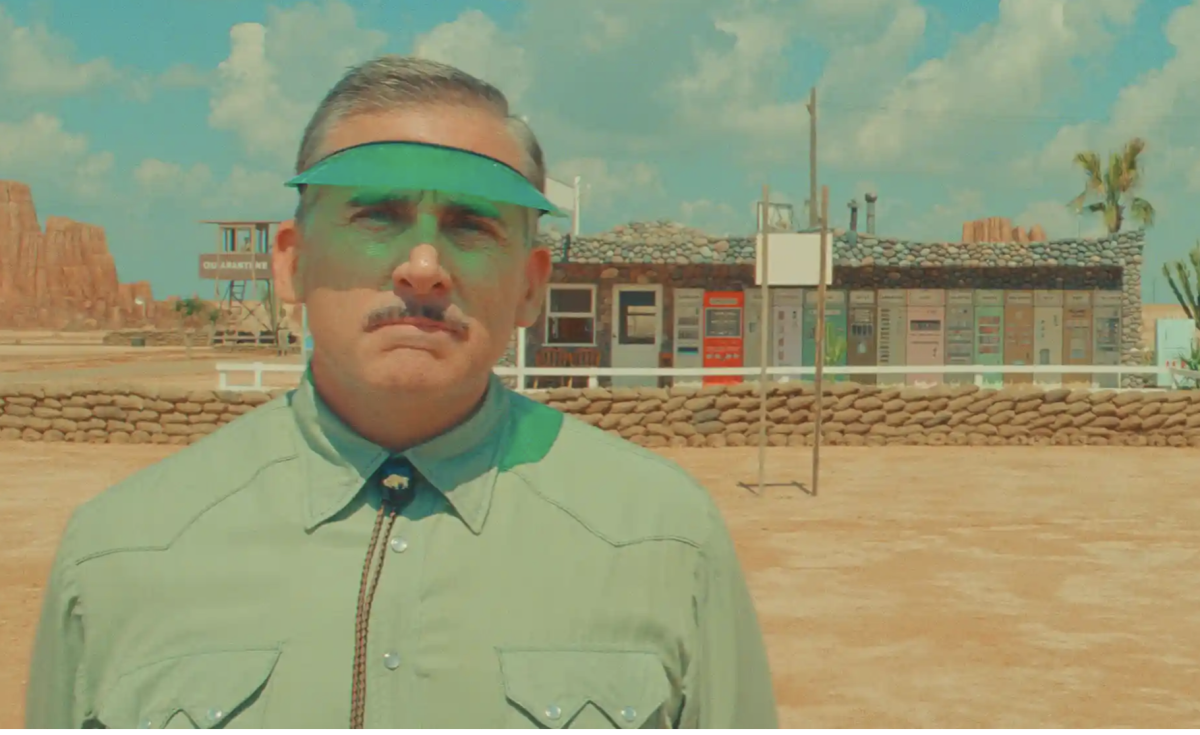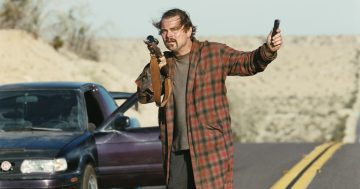
Asteroid City is beautifully made but a little empty. Photo: Supplied.
Only a few weeks ago I was referencing Christopher Nolan’s Oppenheimer, quoting from the Bhagavad Gita, Now I become Death the Destroyer of Worlds, (uttered by the film’s protagonist)
What a remarkable change to look at the same post-war landscape, not through the prism of the “father of the Atomic Bomb”, but a bunch of enthusiastic kids in a remote desert setting in the US.
This is where Wes Anderson has set his latest film, Asteroid City, which operates as a play within a film.
The audience is introduced to the playwright who is seeking to encapsulate some ineffable and somnambulant story about sleepers awakening and discovering the meaning of the cosmos.
The problem here is that he’s trying to convey this mysticism through a story about a bunch of kids being transported to a desert town – Asteroid City, population near zero.
They have all excelled in their various science and maths courses at school and are there to be rewarded for their efforts.
Asteroid City is so named because a small asteroid plummeted from the skies forever ago. There is a crater and we are there to witness the junior stargazer event in the mid-1950s for the young and talented.
Of course it isn’t just about the children. There’s the dad who has recently lost his wife (whose son is there to compete), but he hasn’t yet told him or his three daughters about her death.
There’s the actress mother, whose daughter is massively talented but secretly wonders to herself if a suicidal death wouldn’t be the perfect way to shuffle off this mortal coil.
And as in all of Anderson’s films there is a menagerie of curious and fascinating characters who may or may not be there for a specific reason. It’s never entirely clear, and he never sees the need to clarify this.
Throw into the mix an alien who decides to come and collect the asteroid, and the US military in complete lockdown overload while it decides what to do. And (as you may or may not guess), once the alien returns to deposit the asteroid, the answer is to do nothing.
Anderson’s films are the great conceit of modern cinema. He has triumphed in films such as The Fantastic Mr Fox, The Life Aquatic, Rushmore, The Grand Budapest Hotel, and The French Dispatch among others.
But all of those films have had a central driving core to them. Asteroid City seems to simply be a conceit for the sake of conceit. It feels we have been handed a gorgeous 1950s retro pastel pastiche film set in search of a narrative.
The wry human observations, the fatalistic nature of life, all his core themes are there but they just don’t possess the same weight as his better films.
There is a lot to like in Asteroid City and as usual it is an all-star cast, and everyone is in fine form with cameos aplenty (including girl of the moment Margot Robbie). Jason Schwartzman and Scarlett Johansson are also standouts.
And of course there is much bonhomie in that stilted Wes Anderson style, but it just doesn’t get to the heights I was expecting of Anderson or his exacting standards.
A solid outing but not a great one – three stars out of five.
Marcus Kelson is a Canberra writer and critic. Asteroid City is showing at the Dendy and Palace Electric cinemas and the Lilac City cinema in Goulburn.
Original Article published by Marcus Kelson on Riotact.




